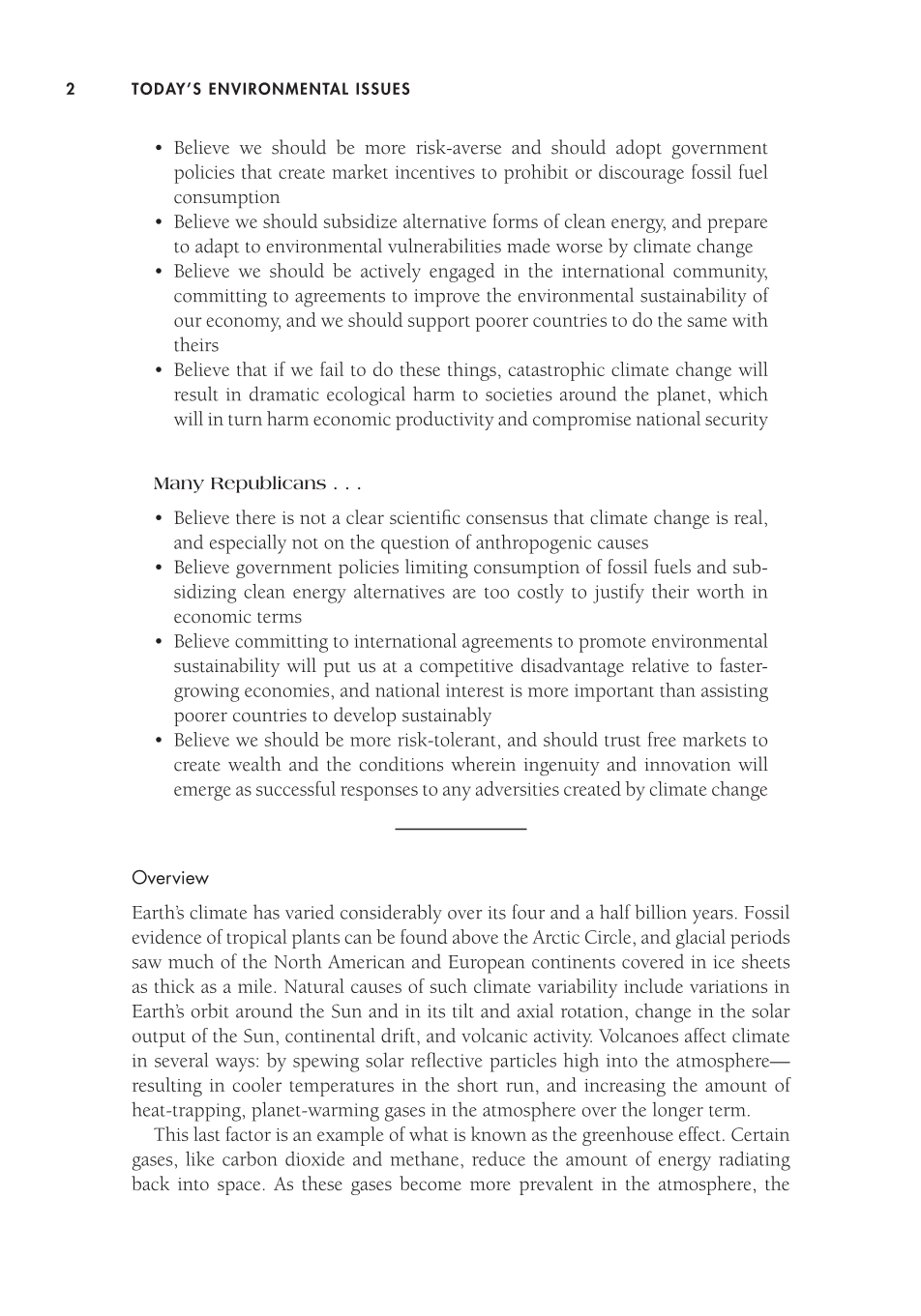TODAY’S ENVIRONMENTAL ISSUES 2
• Believe we should be more risk-averse and should adopt government
policies that create market incentives to prohibit or discourage fossil fuel
consumption
• Believe we should subsidize alternative forms of clean energy, and prepare
to adapt to environmental vulnerabilities made worse by climate change
• Believe we should be actively engaged in the international community,
committing to agreements to improve the environmental sustainability of
our economy, and we should support poorer countries to do the same with
theirs
• Believe that if we fail to do these things, catastrophic climate change will
result in dramatic ecological harm to societies around the planet, which
will in turn harm economic productivity and compromise national security
Many Republicans . . .
• Believe there is not a clear scientific consensus that climate change is real,
and especially not on the question of anthropogenic causes
• Believe government policies limiting consumption of fossil fuels and sub-
sidizing clean energy alternatives are too costly to justify their worth in
economic terms
• Believe committing to international agreements to promote environmental
sustainability will put us at a competitive disadvantage relative to faster-
growing economies, and national interest is more important than assisting
poorer countries to develop sustainably
• Believe we should be more risk-tolerant, and should trust free markets to
create wealth and the conditions wherein ingenuity and innovation will
emerge as successful responses to any adversities created by climate change
Overview
Earth’s climate has varied considerably over its four and a half billion years. Fossil
evidence of tropical plants can be found above the Arctic Circle, and glacial periods
saw much of the North American and European continents covered in ice sheets
as thick as a mile. Natural causes of such climate variability include variations in
Earth’s orbit around the Sun and in its tilt and axial rotation, change in the solar
output of the Sun, continental drift, and volcanic activity. Volcanoes affect climate
in several ways: by spewing solar reflective particles high into the atmosphere—
resulting in cooler temperatures in the short run, and increasing the amount of
heat-trapping, planet-warming gases in the atmosphere over the longer term.
This last factor is an example of what is known as the greenhouse effect. Certain
gases, like carbon dioxide and methane, reduce the amount of energy radiating
back into space. As these gases become more prevalent in the atmosphere, the



















































































































































































































































































































































































































